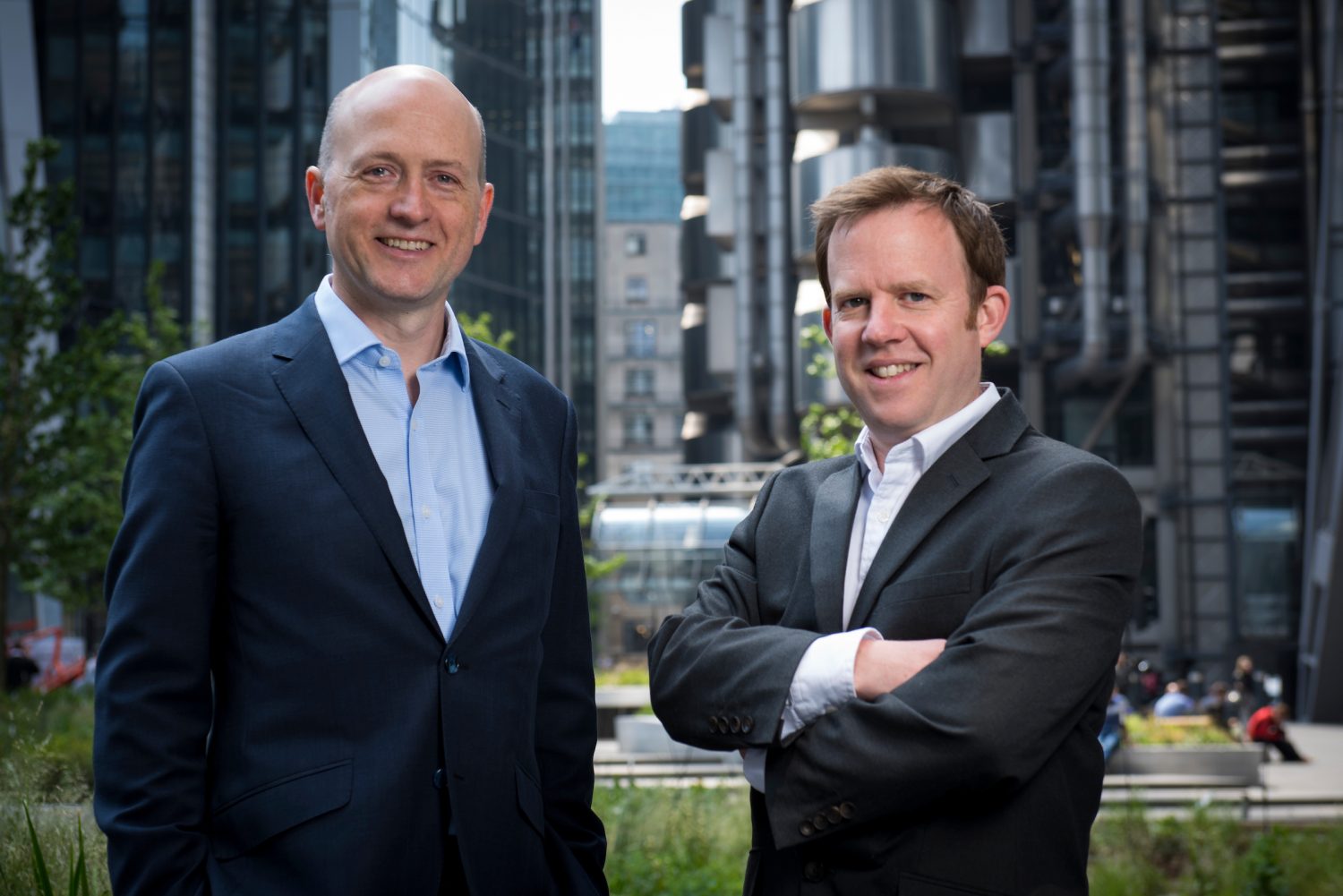

Power List alumni Sam White and Will McDonald were already blazing a trail at Aviva with their job share arrangement when things got tough. And that’s when it really came into its own.

When Sam White took parental leave from Aviva in 2017, and his colleague Will McDonald acted up to cover the role, they assumed it was just temporary. Now, almost four years later, they’re a job share success story, and proof that this kind of arrangement can have a positive impact far beyond the everyday.
It was while Sam was away that Will started to consider job sharing. He was keen to support his wife’s career, and to be around for his children for more than just evenings and weekends. So he floated the idea with Sam, who was keen to explore a part-time arrangement for the same reasons, and they decided to pursue it.
SAM: “Will had proved that he was ready for the Group Director role while I was away, and I knew we could make it work from a chemistry point of view; we’d been colleagues for a number of years, before and during our time at Aviva. So we put our heads together to sort out the practicalities, and pitched it to Kirsty Cooper, our boss, who has been incredibly supportive throughout.”
At that time, there was no one else at director level working in a job share. The role involves a great deal of internal and external stakeholder management, so they knew they would have to get their Executives comfortable with the concept. They suggested a six-month trial, and took on the responsibility of making it work.
WILL: “We explained to Kirsty that we would use the six months to prove that we could deliver as a job share – and that if she and the team didn’t feel we were working to a high enough standard, we’d accept their decision. In the event, even before the end of the trial, our Exec team agreed that it was a success, with one member telling us they had switched from being a sceptic to a convert.”
The pair took advice on how to succeed as a job share, and developed a set of principles which they would adhere to. They agreed three areas in which they would come together for decision making – changes in strategy, hiring, and spending over a certain amount – and that for everything else, they would take individual decisions, but have collective responsibility. They also instigated a framework for a written handover, as well as having a verbal handover on their crossover day.
The response from their colleagues has been overwhelmingly positive, and Aviva colleagues who are exploring a similar arrangement come to them for advice. They were also successfully nominated for the 2018 Power 50. But it was in 2019 that they discovered an additional benefit of their arrangement – the ability to navigate an emergency.
WILL: “Out of the blue, I experienced what I later discovered was a mental health breakdown, and was signed off work. Sam immediately stepped up, working a four or four-and-a half-day week for six months, until I was sufficiently recovered, to start the transition back in. And I took that process pretty slowly; it was another couple of months until I was fully back in the role.”
Clearly, Will’s wellbeing was his team’s first concern; but from a purely business perspective, having the job share in place made everything much easier. Instead of having to draft someone in to take over his role, they had Sam in place to run things, with a bit of extra support. And although it meant Sam had to increase his days, it was something he was happy to do.
SAM: “One of the great things about a job share is that everything works both ways – there have been times when I’ve needed to step back a little and have been able to rely on Will to pick up the slack. I was also able to take on a secondment opportunity which I was offered this year, and once again, the business wasn’t negatively affected, because Will simply took over.”
So from a business perspective, job sharing works on a number of levels. It gives you two brains for the price of one, a double hit of fresh energy in the week, and double the amount of thinking time, or ‘toothbrush time’ as Sam describes it. It is also a powerful attraction and retention tool.
SAM: “We all know the issues about the lack of women on boards and the gender pay gap. And yet the default is still that women work part-time and men go back to their old arrangement when they become parents. Job sharing allows people who want to work less than a full week to stay at a high level, and progress further, in a way that part-time doesn’t; it’s important that more people, men as well as women, are allowed and encouraged to do it.”
And as a built in emergency and succession plan, it’s second to none.
WILL: Neither Sam or I are intending to leave Aviva, but if one of us did, the succession plan is in place; the other one could take over, or recruit another partner. That seamlessness is such a bonus for an organisation, and it really came into play when I was struggling. Being able to switch off totally, knowing Sam was in control, made my recovery much easier, and I’ll always appreciate that.”